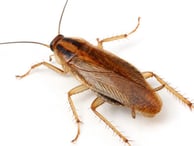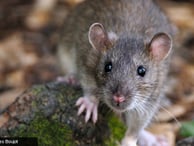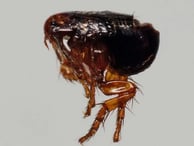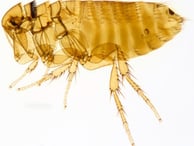
Expert Montreal Pest Solutions
We Specialize in Bedbugs, Cockroaches, Fleas, Ticks, Mites and Rodents. Leaders in Pest Management for Montreal Homes and Businesses.
Greater Montreal Area - Laval - Longueuil - Laurentians
Montreal Pest Directory
Bed bug (Bedbug)
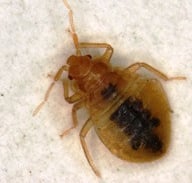

Scientific Name:
Cimex Lectularius
Also known as:
Bedbugs, Mahogany Flats, Red Coats
What Are Bed Bugs?
Bed bugs are small, flat, wingless insects that feed on the blood of humans and other warm-blooded animals. They are reddish-brown, nocturnal, and highly elusive. Unlike fleas or lice, bed bugs do not live on the body but hide in nearby crevices and only emerge to feed.
Global Context
Bed bugs have been human parasites for thousands of years. Archaeological evidence places them in ancient Egyptian and Roman sites. Though nearly eradicated in the mid-20th century, bed bugs resurged globally in the 1990s due to increased travel, pesticide resistance, and changes in pest management practices.
Quebec Context
Montreal has seen a steady rise in bed bug reports over the past decade, particularly in high-density housing. Public health departments regularly monitor infestations, and certain boroughs maintain active inspection and treatment protocols. They are most often found in mattresses, bed frames, baseboards, and cracks in walls or floors.
How Bed Bugs Infest Homes
Hitchhike on luggage, clothing, secondhand furniture
Hide in mattress seams, bed frames, baseboards, electrical outlets
Spread between apartments or hotel rooms via walls and vents
Feed at night, typically near sleeping areas
Can survive months without feeding
Why Bed Bugs Are a Problem
Cause itchy welts and allergic skin reactions
Psychological stress: anxiety, insomnia, and social stigma
Difficult to detect until infestations are widespread
Hard to eradicate due to resistance and hiding ability
May trigger asthma or respiratory issues from droppings or skins
Bed bugs Reproduction Rate
1 Week: 40-50 Eggs - Female lays 1–7 eggs/day
1 Month: One female can produce up to 200 eggs
1 Year: Population can potentally grow to ove 28 million Bed Bugs
Parasites & Cross-Infestation Risks
Studies show that Bed Bugs carry vast amounts of Bacteria
People with long-lasting infestations devellope alergies to Bed Bug bites
Bed Bugs can cause anemia and general health problems when infestations grow and are long-lasting
Bed Bugs change the bacterial composition of homes they infest and can cause severe immune problems
Bedbugs proliferate in conditions that are favorable to other pests like Fleas and other blood-feeding parasites
Why Hire a Professional
DIY treatments rarely work long-term. Bed bugs can resist common pesticides and hide in inaccessible areas. A professional exterminator will: Conduct thorough inspections using detection tools. Apply multi-step treatments including heat, steam, and residual insecticides. Provide follow-up services and monitor for re-emergence. Educate clients on prevention and mattress encasement solutions.
Scientific Research:
Bed Bugs (Hemiptera, Cimicidae): A Global Challenge for Public Health and Control Management
https://pmc.ncbi.nlm.nih.gov/articles/PMC10340649/
Study shows bed bugs produce potentially dangerous amounts of histamine
https://news.ca.uky.edu/article/study-shows-bed-bugs-produce-potentially-dangerous-amounts-histamine
Investigating the association of bed bugs with infectious diseases: A retrospective case-control study
https://www.sciencedirect.com/science/article/pii/S2405844021022106
The Bedbug and Pest Expert in Montreal
"We value your piece-of-mind."
Innovation
Professionalism
Passion!
© 2025. All rights reserved.
Accord Extermination





